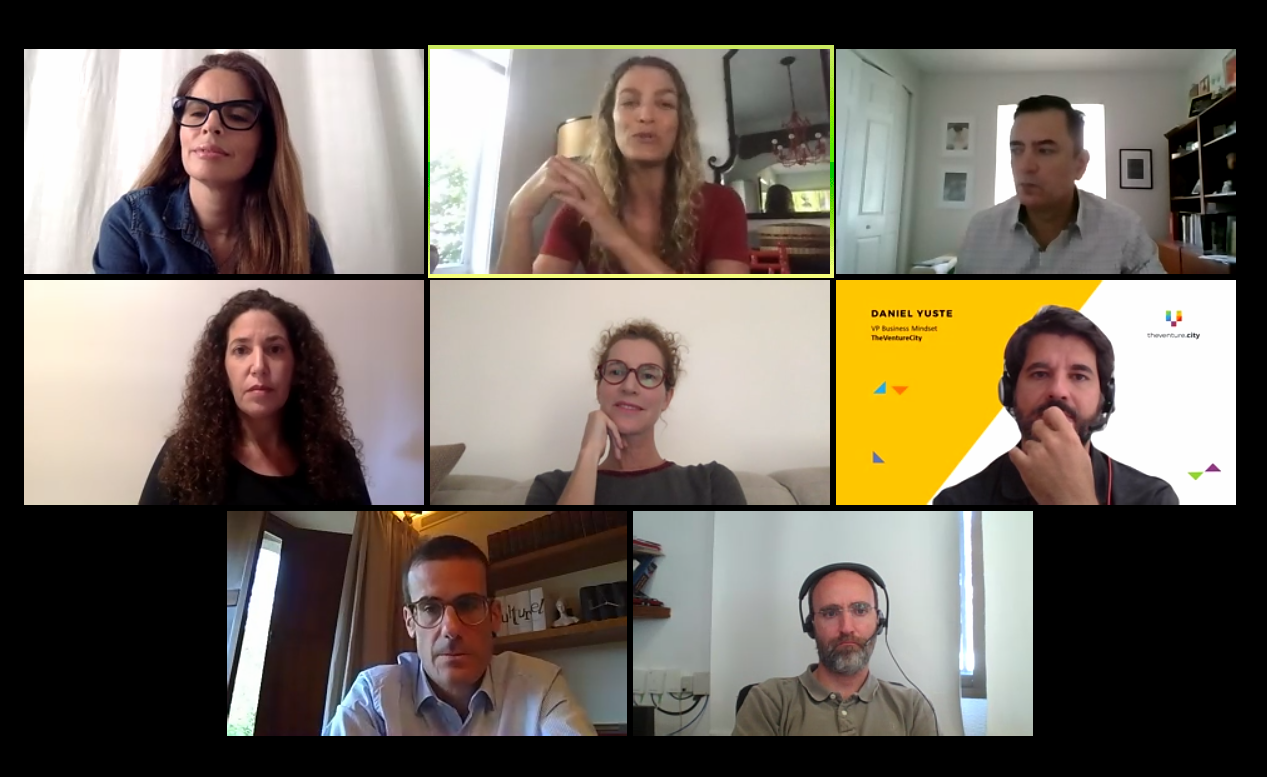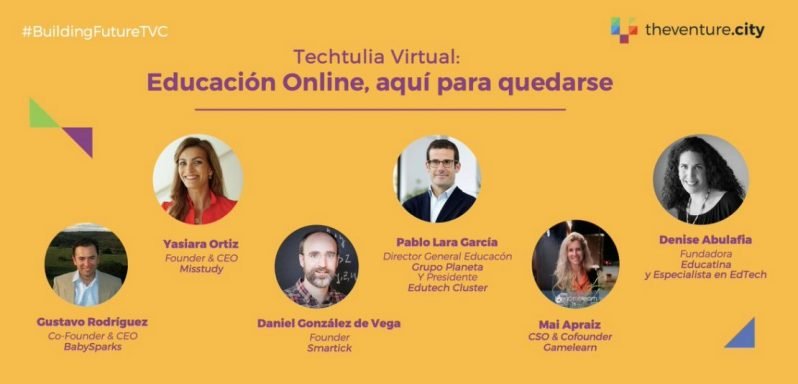Given the current COVID-19 epidemic, most companies have been forced to move their professional meetings online, along with other training and educational endeavors. With this in mind, The Venture City, an investment fund focused on helping startups grow, put on an online event with representatives from several leaders in the e-learning field. Given that many workers find themselves in quarantine, e-learning has shifted to the forefront of the professional consciousness, and more and more companies are adopting it.
The event saw professionals from all across the e-learning spectrum share their thoughts and experiences. Among the speakers were Gustavo Rodriguez, the CEO of BabySparks, dedicated to the education of babies and young children, Mai Apraiz, the co-founder of Gamelearn, a game-based learning platform for corporate training, Daniel Gonzalez, the founder of Smartick, who’s focused on child and youth development, and Pablo Lara, the Director of Education at Grupo Planeta.
The experiences of all these speakers, as well as those of the founder of Misstudy, a platform that supports college students, and Denise Abulafia, the founder of Educatina, paints a clear picture of how broad and complex the world of e-learning can be. As Daniel González noted, “The same pattern of analysis cannot be applied to corporate education as it is to school education”. Even with this in mind, the talk was able to give us a macro view of all the different types of case studies that converge in the EdTech world.
How will the current crisis affect online training?
All speakers independently noted that, in addition to radically changing the mindset of the sector (still often hampered by inertia), the health crisis has shown a light on the previously slow adoption and embrace of necessary digital learning tools.
This disruptive phenomenon is perfectly illustrated in the startup Smartick, which offers a method for teaching math to children and adolescents up to age 14. Its CEO explained how their subscriber numbers had grown as much in the past month as they had in the first eight years of the company. Sometimes companies are forced to make the most of a bad situation and can even come out in a better position than before.
“We’ll have to work to make this transition a more structural one” Pablo Lara, Director of Education at Grupo Planeta and President of Edutech Cluster.

Screenshot of a moment in the ‘techtulia’ organized by The Venture City
That’s why Pablo Lara, who also directs the Edutech Cluster, a hub of educational innovation, also talked about upcoming changes (with their inevitable ups and downs). From his point of view, the EdTech industry has advanced and many more individuals involved, such as parents or students, are more likely to embrace this type of technology. However, according to him, in the long term (at least in Spain), there’s still not enough digital content or devices in the traditional educational system. “We’ll have to work to make sure this transition permeates into the structure of the system,” he advises.
Are we ready for the challenges ahead?
As Daniel Yuste from The Venture City points out, at all levels the education sector is “prototyping”, as they say in start-up speak. It’s been a matter of experimenting with the digital model while simultaneously being forced to adopt it.
It’s clear that technology is the most reliable means for maintaining our reality and “now we’re starting to worry about whether the content is appropriate, whether continuous corporate training is going to be effective, and how we are going to retrain people who may be forced to change jobs”, explains Yuste.
Pablo Lara’s reference above to the common motivation shared by EdTech company seems to be spot on. The use of technology in educational systems, regardless of the student’s age, has the same objectives: to improve efficiency, (often through digitization) and to improve effectiveness (i.e. results).
With varying degrees of resistance, this is the work that lies ahead now that reality has forced a “prototyping” of what training will look like from now on.
Gamelearn: the benefits of never shying away from digital innovation
At Gamelearn, our commitment is squarely on the digital realm– and the innovation that must go along with it. For more than 15 years, the company has carved out and solidified its niche by showcasing the effectiveness of game-based learning courses. So now, in a time when the world is moving towards e-learning, Gamelearn already has a head start.
Online training at the corporate level has had a long history in and of itself. For some companies, the only obstacle may be convincing some managers to put it to the test.
However, the current crisis has forced the hand of some of those reluctant decision-makers to join a process that, as Mai Apraiz points out, “was already in motion and was never going to stop”. In her opinion, Gamelearn “has shown that the results of game-based learning methods can be comparable to or even better than those of traditional training”.



Leave a Reply